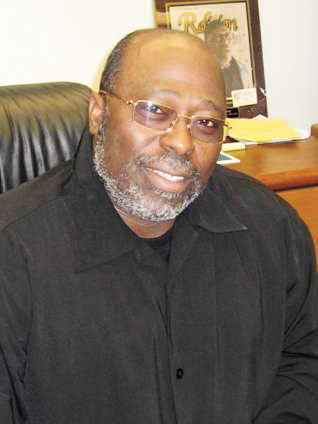
RASHAD BYRDSONG
In the weeks following the most recent Presidential election, many attest that it was President Obama’s “ground game” that won him the white house for a second term. President Obama’s victory highlighted two important things: 1. Money is required for a movement, but it is within the mobilization of individuals wherein true political power lies and 2. Our poorest and most disenfranchised communities can effectively harness our political power to create global change. President Obama’s victory also illuminated a harsh reality—due to the focus on the wealthy and the great disparity in partisan philosophies, the issues facing many of our urban neighborhoods may linger longer than we would like, and for far longer than many of us had hoped when we cast our vote.
The fact remains that relentless poverty, chronic unemployment, soaring high school dropout rates, the increasing proliferation of guns and drugs, homicides, mass-incarcerations, homelessness, the emotional and psycho-social impact of displacement and being uprooted, as well as the divestment of institutions have impacted the mental/physical health and well-being of African Americans in traumatic ways and have left behind the by-product of interpersonal and structural community violence.
Just as President Obama worked a strategic grassroots plan that led to his victory, we must initiate and execute our own “ground game” which will be vital to our ability to habilitate our communities.
THE HYPOTHESIS: Grass Root Habilitation
Political representatives must be committed and dedicated to legislating enforceable policies and an agenda that will guarantee quality education and employment opportunities within urban epic-centers, thereby working towards the elimination of poverty and its effects.
In the 6th District of South Carolina, Congressman James E. Clyburn created the 10|20|30 amendment to highlight the importance of “leaving no community behind.” Much like this amendment in South Carolina, there has to be an equitable, fair, just and transparent process in the distribution of resources and reinvestment dollars.
In the early 1980’s John Edward Jacob, the then President of the Urban League, helped to develop a plan for urban recovery similar to the 1947 Marshall Plan initiated to assist European nations after World War II. Aid was sought from private sectors to facilitate entry-level job training programs, and Jacob proposed the League give direct assistance from its own resources to poverty-stricken minorities and whites, including housing and job placement. This history affirms the need for a local and national commitment to revitalize urban centers. There is an active assault on our civil rights and our communities.
THE SOLUTION: Agenda & Action
We have to ask ourselves some very hard questions about two things: political strategy and urban policy. What lessons have we learned in the past 20 years that we can apply to these issues? What should we—planners, organizers, activist, scholars, and teachers—be doing differently? Where is the debate on urban issues of unemployment, school closings, public safety, violence and housing? We must develop a very clear urban agenda via what was once called “operational unity,” which will not require uniformity of mission, but rather clarity of vision.
Therefore, this “message” is a call to action that is rooted in our duty as American citizens. The cliff urban neighborhoods are facing—the cliff that will cause our entire country to plummet into the dark abyss of unending violence, suffering as a morally bankrupt, self-seeking and separated nation, is far steeper than the fiscal cliff we are presently negotiating to avoid. Our national leadership is fragmented at best and we have to be responsible by organizing our communities to have greater political and economic inclusion. It is imperative that we stand up, affirm and assert ourselves through a solidarity that transcends ideological, religious, political and organizationally perceived differences and moves toward Collective Political Empowerment. To be more intimately involved with the movement, email T. Rashad Byrdsong at trbyrdsong@ceapittsburgh.org.
(Rashad Byrdsong is the CEO of Community Empowerment Association. )